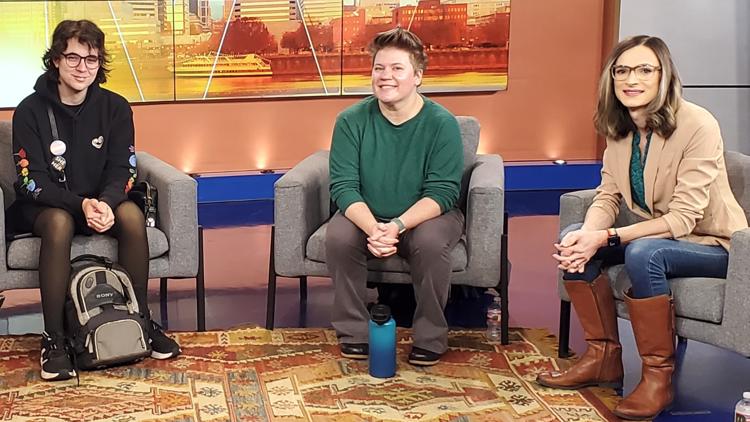Transgender voices highlight the vital role of being an ally

It is June, which means all around the world people are celebrating Pride Month . It’s a time to celebrate progress, push for change and bring attention to issues that the LGBTQ+ community is facing.
KGW spoke with people in the LGBTQ+ community who say it’s crucial to be intentional about showing support.
At 21 years old, Ella Bright has many layers that make her, her. She's a student pilot, a photographer and transgender.
“A lot of times, trans people like me, they walk around with a shield up,” said Bright.
She said many trans people are constantly ready to face bigotry and possible violence. It's exhausting and scary, which is why Bright said allyship is so important.
“The second that you allow them to put their shield down through your actions, it immediately just takes all the weight off their shoulders,” Bright explained.
So, what is being a good ally?
“Keeping that curiosity and leaning in and saying, 'You know what, I actually don't know about that. I want to know more because I want to get it right.' That's what allyship is,” said Mackenzie Dunham, owner and founder of Wild Heart Society , a group mental health practice in Vancouver serving LGBTQ+ kids and families.
Dunham said an example of being an ally would be if someone heard a joke in a break room, they could say it’s not funny — just like they might do if they heard a racist joke.
Dunham said being an ally and providing a safe place for trans people and others reduces rates of suicide, which are high in the transgender community.
On the National Institutes of Health website, a study in the Journal of Interpersonal Violence found data showed that 82% of transgender people have considered killing themselves, and 40% have tried. Data show the risk of suicide is also a significant issue among trans youth.
In 2024, another study was released, showing a link between anti-trans legislation and a 72% increase in suicide attempts among trans and non-binary youth.
“In marginalized communities, you feel the oppression sort of woven through your daily everything, and the only thing worse than feeling like an oppressed person is feeling it alone,” Dunham said.
She said two factors make a huge difference in lowering the suicide rate: a supportive family, as well as a supportive community.
Sundaura Lithman, a therapist who is transgender, said anyone demonstrating their allyship has a huge impact.
“Historically in most Western cultures, our humanity has not been validated. There have been all these ways that we have been dehumanized,” said Lithman. “Just engaging people in conversation to humanize, to normalize — it's one of the most important things.”
For Bright, being an ally is simple.
“It's curiosity, it's respect and it's kindness. It's just the golden rules of being a good person,” Bright said. “It makes all the difference in the world.”
Dunham said it’s important to remember that LGBTQ+ people are just like everyone else — they're going to work every day, taking care of their families and paying the bills. So, she said, when we hear things about a marginalized group, like the transgender community, take a moment, think critically and keep in mind the misinformation that's out there.
If you or someone you know needs help, call or text 988, the National Suicide Prevention Hotline, open 24-7.
The Oregon YouthLine can also be reached at 877-968-8491; Oregon’s Lines for Life can be reached at 800-273-8255.
The Trevor Lifeline for LGBTQ youth is open 24/7 at 1-866-488-7386; TrevorChat is also available 24/7 days a week, or you can text the word “START” to 678-678.
Post a Comment